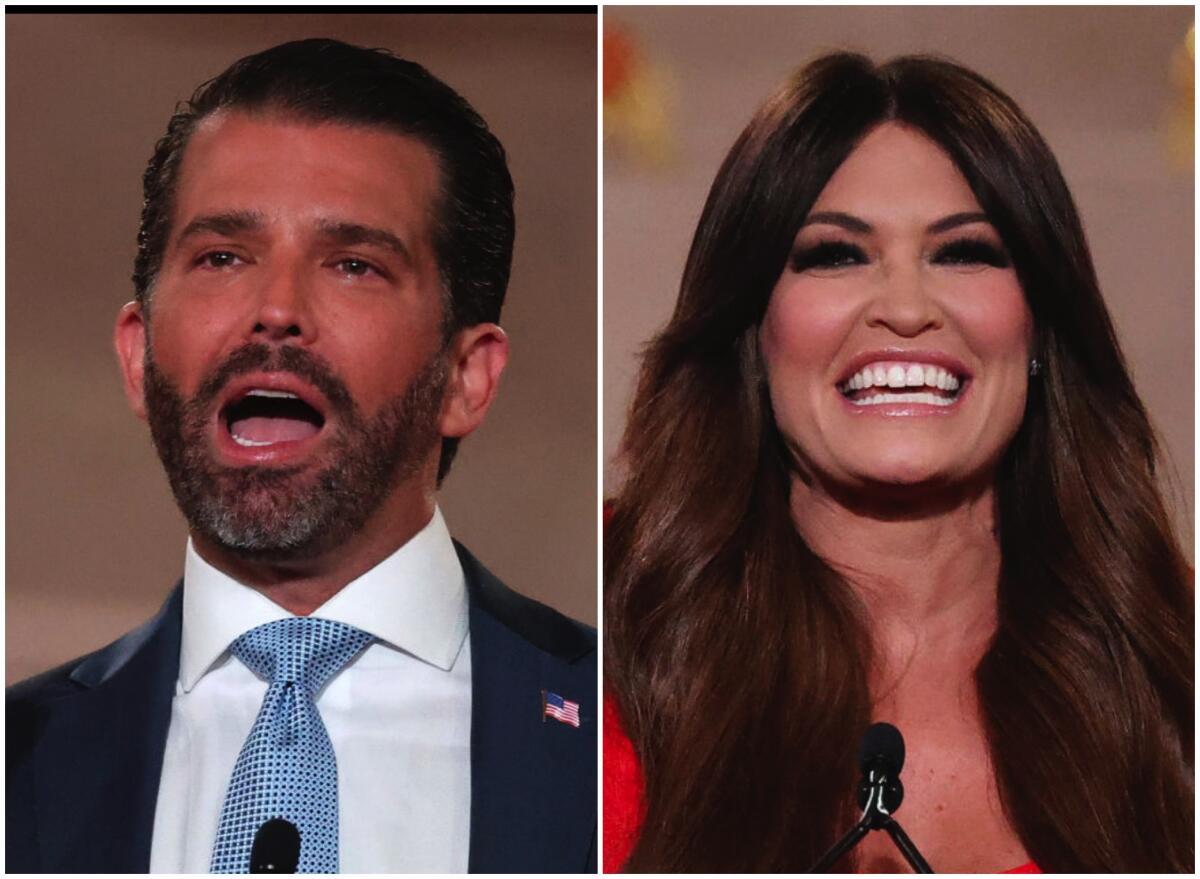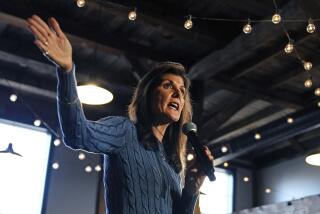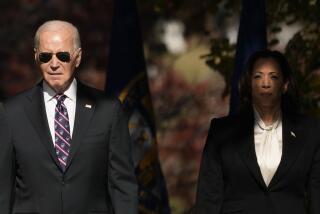Opinion: Amid our coronavirus crisis, GOP convention doubles down on individual liberty

At their convention last week, Democrats sought to frame the presidential election as a referendum on the character of the nominees — Joe Biden’s vs. President Trump’s.
At the first day of their convention Monday, Republicans sought to frame the presidential election as a referendum on the character of the country — as a nation of individuals or a dystopian socialist collective.
This is a column not about Republican hyperbole, but rather about the question underlying the pictures the GOP speakers painted of the country’s past, present and future. To wit, does government exist to empower individuals, or does it exist to manage shared responsibilities?
The simple answer is “both,” but last week the Democrats focused hard on the latter as they talked about the need to beat COVID-19, address climate change, confront systemic racism and rebuild the country’s infrastructure. It was a “leave no one behind” convention.
On Monday, the GOP message was more “hold no one back.” Speaker after speaker talked about how he or she had become successful by working hard, powered by little more than their own will and the help of their families. When Democrats lead, they warned, the government doesn’t assist, it obstructs and weakens. And worse, it doesn’t protect individuals, their homes and their businesses from the mob that’s burning and looting cities.
With characteristic subtlety, Kimberly Guilfoyle, a fundraiser for the Trump campaign, declared that Democrats “want to enslave you to the weak, dependent, liberal, victim ideology, to the point that you will not recognize this country or yourself.” Even when speaking to an empty room, Guilfoyle turned it up to 11.
The worldview offered Monday didn’t acknowledge structural problems that are widening income and wealth gaps. To the extent that poor kids are being held back by lousy schools, the solution offered was to make public schools compete for scarce dollars with private ones (which the president’s son, Donald Trump Jr., said his father viewed as the civil rights issue “of all time”).
No one mentioned the millions of unemployed Americans or the COVID-19 death toll, nor did anyone utter the word “climate.” Nikki Haley, former U.S. ambassador to the United Nations and governor of South Carolina, declared that “America is not a racist country,” even as she talked about her own family being discriminated against as brown-skinned immigrants in the South.
Liberty has always been a core American value, so there’s a natural tension between individuals’ liberty interests and their desire for a stable, secure, healthy and prosperous world around them. The latter requires no small amount of sacrifice, whether it be paying taxes or curbing pollution, maintaining social distance or serving in the military.
But while the Democrats harped on the notion that we’re all in this together, Republicans on Monday stuck to the liberty side of the equation, zooming in on the suffocating excesses of the politically correct left. “Cancel culture” was a frequent punching bag, with Trump Jr. delivering the most forceful indictment.
“In the past, both parties believed in the goodness of America. We agreed on where we wanted to go. We just disagreed about how to get there,” he said. “This time the other party is attacking the very principles on which our nation was founded: Freedom of thought. Freedom of speech. Freedom of religion. The rule of law.”
Never mind that the Trump administration has been forced to reverse course more than 100 times after being sued for violating the rule of law, according to the New York University School of Law’s Institute for Policy Integrity. And never mind that the two parties stopped agreeing on “where we wanted to go” probably around the time the GOP nominated Barry Goldwater in 1964.
A more hopeful vision of the individual was offered by Republican Sean Parnell, who’s running for Congress in Pennsylvania. An Army veteran who spent more than a year fighting in Afghanistan, Parnell captured the tone that Trump had suggested was going to dominate the GOP convention (a promise not yet kept).
“In our tent, you are free,” Parnell intoned. “Free to speak the truth, choose your journey, define your life. You have the power to go as far as you aim, then aim higher and keep going because that is what Americans do. We are idealists and dreamers, lovers of adventure. We are rugged and independent. We don’t make excuses. We make the impossible a reality.”
On the surface, Monday’s session was about strength versus weakness. But underneath it all, the message was that the problems we face are surmountable by individuals, if only the government would let them. In the middle of a pandemic, with unemployment at the highest level since 1940 and with the nation convulsed by an overdue reckoning on racism, that feels like a tough sell. But Republicans have three more nights to make the pitch.
More to Read
A cure for the common opinion
Get thought-provoking perspectives with our weekly newsletter.
You may occasionally receive promotional content from the Los Angeles Times.







